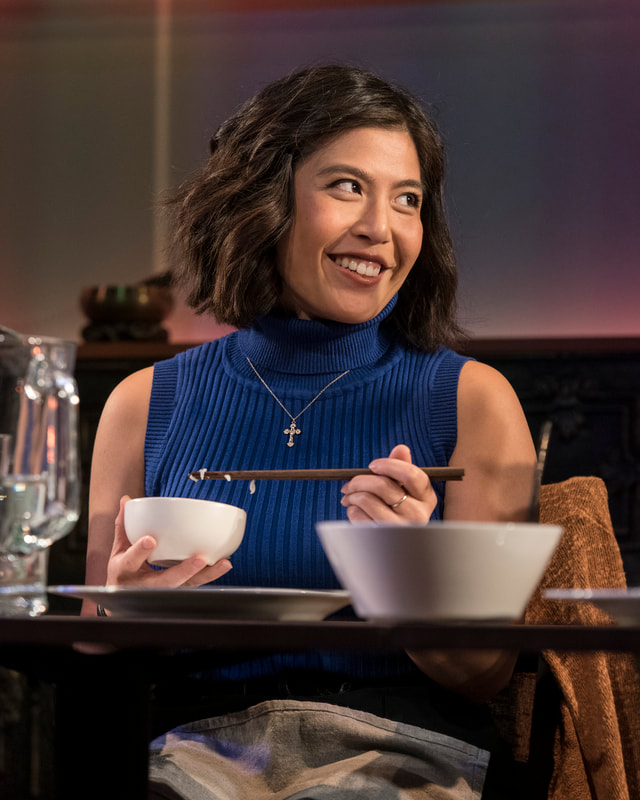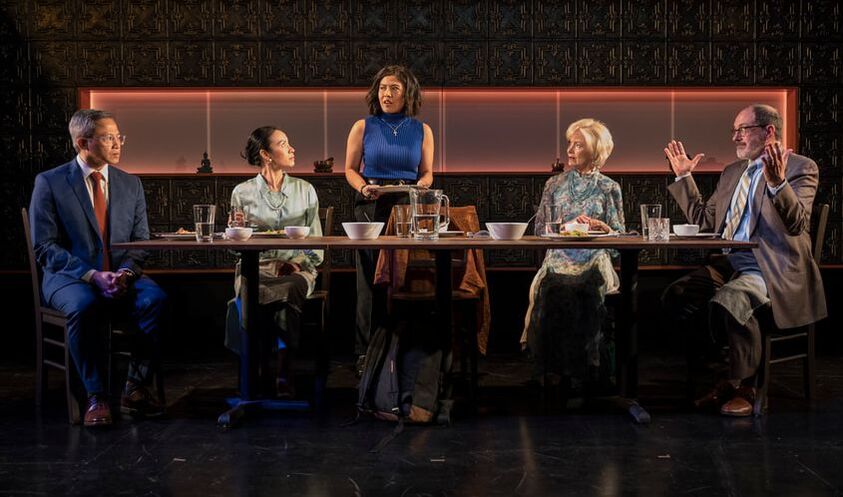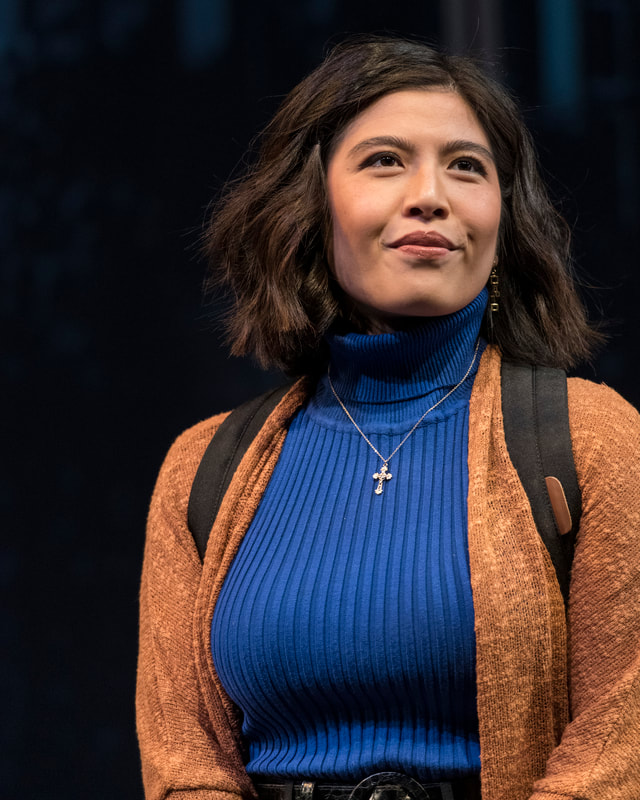Your source for Arts & Entertainment content, as well as fabulous human-interest stories, from Baltimore and beyond!
|
By Frankie Kujawa In “Dinner and Cake,” running through Sunday, October 2nd at Everyman Theatre, the character of Mỹlinh has the chance to boost her career and make important connections in her new home in Washington DC. All she has to do is translate a simple dinner meeting between her friends’ parents – American and Vietnamese in-laws. When the two couples clash over the course of the evening, Mỹlinh must navigate and defuse the awkward and complicated cultural, national, and social politics between the two countries that make up her own unique identity. Actress Carolina Đỗ, who plays Mỹlinh, chats about her role and the lesson she hopes audience take away from the production. Frankie Kujawa: What can audiences expect from this production of Dinner and Cake? Carolina Đỗ: One big thing that audiences can learn, or expect, from the show is how much we in America tend to write off people who don’t speak our language – people who don’t speak English. The play deals with a lot of discomfort in the conversations that we can have with people in day-to-day life, but also the lingering repercussions of US Imperialism and war. Also, there are the dynamics of these two couples which shows that it doesn’t matter which side of the ocean you are on - parents will be parents. So, there’s a lot of humor within the show which also comes from the discomfort within the show. Frankie Kujawa: Could you describe your character Mỹlinh for our readers? Carolina Đỗ: Mỹlinh serves as a bridge between two worlds. She’s a highly educated woman who is always prepared to do the right thing. I think in this play you get to see her really navigate and try to do the right thing while also trying to maintain peace between two sides. At the end, I think what really happens is that she learns to be able to choose herself and make the decisions in which she would be happy with versus the decisions that she thinks will make other people happy. Frankie Kujawa: Was there anything that you learned while working on with this production?
Carolina Đỗ: I think one of the biggest things I’ve learned during this whole process is to not strive for perfection, but to really give myself generosity. Not only generosity to myself, but as well as generosity to my fellow castmates. Giving the space to experiment and the space to make different choices each night. On a language and textual note, [this production is] the first time I personally get to speak Vietnamese on stage, even though it’s my father tongue. Just realizing the nuances that comes with the Vietnamese language; that is really hard to translate into English. One of the ways that we, who are able to speak these two languages and who are able to be the bridges between these two worlds, did the work so that both sides understand each other but also hold the space for ourselves to take care of ourselves. Frankie Kujawa: Why do you think that this is such an important production four audiences in Baltimore to see? Carolina Đỗ: I think, first off, it’s the first play of its kind ever to have Vietnamese spoken on stage for such a long period of time. I think it deals with an American sense of discomfort of not being able to understand a language that isn’t English. It really asks the audience to maybe put themselves in the shoes of people who don’t look like them. I would love for people to come away knowing that whether those who may not speak the same language, who may be immigrants or may be refugees - that we shouldn’t immediately write them off because they come from somewhere else. Or, that they don’t speak our language or don’t have the same customs as we do. I hope people come away with a curiosity to learn about their neighbors. For example, I’d like for people in Baltimore to really be able to have that conversation of ‘If I don’t understand something’ or ‘I see something that I think is strange’ to have the curiosity to ask the questions rather than shut down with assumptions of who this person is, their history, etc. Frankie Kujawa: What large lesson, or message, do you hope audiences will take away from this production? Carolina Đỗ: I hope that people come away from this show with an eagerness to learn about other cultures with the humility to ask questions rather than make assumptions. Also, I hope people come away from this show with the knowledge or feeling that we can heal from our past mistakes. That tomorrow and our future is ours to write for ourselves. For more information on "Dinner and Cake" visit: everymantheatre.org/
0 Comments
Your comment will be posted after it is approved.
Leave a Reply. |
Archives
January 2024
Categories
All
|


